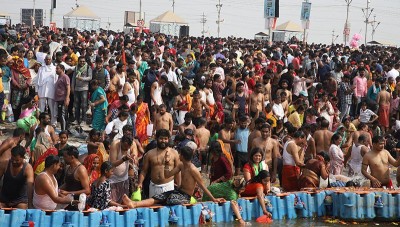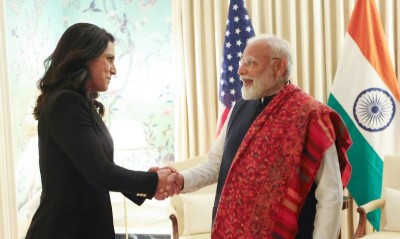
NDMA starts advance preparations for tackling heat wave this year
The two-day workshop organised in collaboration with the Government of Telangana plans to devise effective measures to tackle the onslaught of heat wave.
The workshop sensitised states to the need of preparing and implementing their Heat Wave Action Plans in line with NDMA’s ‘Guidelines for Preparation of Action Plan – Prevention and Management of Heat-Wave’ formulated and circulated last year.
R.K. Jain, Member, NDMA, said, “In 2015, the number of deaths recorded due to heat wave was higher than deaths caused by any other disaster. In this background, NDMA came up with a set of guidelines for managing heat waves in 2016. We closely reviewed and monitored the preparedness and actions taken by heat wave prone States and with the combined efforts of all stakeholders, especially the state governments, were able to bring down the number of deaths drastically.”
Last year, the effective implementation of Heat Action Plans by some of worst affected states brought down the number of heat wave-induced deaths in the country by about 50 per cent, the Ministry of Home Affairs said in a release.
Dr. D.N. Sharma, Member, NDMA, said that with advance planning and preparedness, and active participation of all stakeholders, not only deaths but also illnesses induced by heat waves could be brought down.
Giving a presentation on prevention and management of heat waves, Dr. V. Thiruppugazh, Joint Secretary, NDMA, emphasised on the importance of Heat Action Plans and a robust database. He added that awareness campaigns were needed to sensitise communities to take measures to reduce the impact of heat waves.
Dr. K. Tirupataiah, ADG, Dr. MCR-HRD Institute, Hyderabad, spoke about the importance of reviving indigenous traditions and knowledge to mitigate the impact of heat waves. He also talked about the need to involve children and Panchayati Raj Institutions in spreading the message of awareness.
The first technical session on Heat Wave Action Plan and Risk Reduction focused on the development of Heat Action Plans for prevention and management of heat waves. It discussed the nuances of fine-tuning Action Plans to cater to localized needs and solutions.
During the second session, Andhra Pradesh, Gujarat, Telangana, Odisha and Maharashtra shared their experiences and best practices to help other states prepare their Heat Wave Action Plans. These states, which are among the most vulnerable, have been able to largely mitigate the impact of heat waves with better preparedness and timely intervention.
The session on Early Warning and Forecasting of Heat Wave was chaired by Dr. D.N. Sharma, Member, NDMA.
It focused on the importance of area-specific short-range forecasting along with extended forecasting to help authorities to understand the immediate requirements of a region as well the most suited mitigation measures for the entire heat wave season.
Image: PIB
Support Our Journalism
We cannot do without you.. your contribution supports unbiased journalism
IBNS is not driven by any ism- not wokeism, not racism, not skewed secularism, not hyper right-wing or left liberal ideals, nor by any hardline religious beliefs or hyper nationalism. We want to serve you good old objective news, as they are. We do not judge or preach. We let people decide for themselves. We only try to present factual and well-sourced news.








